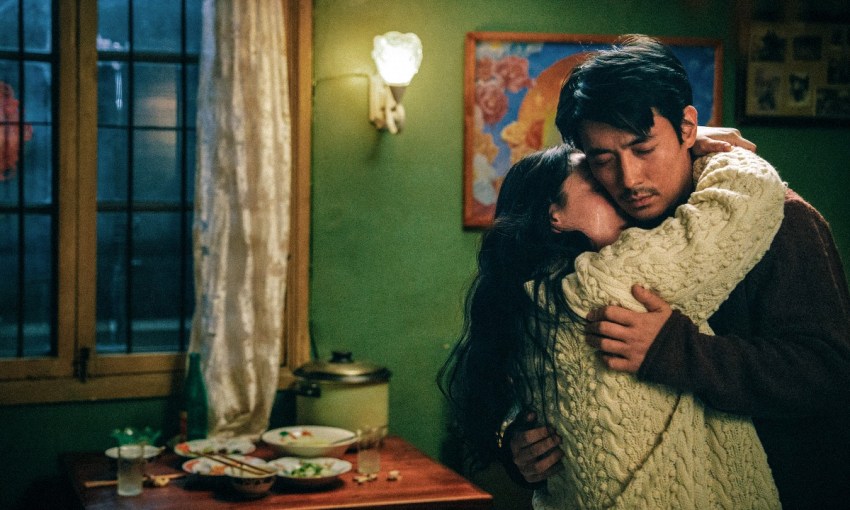What compels a person to kill? How do we even begin to unravel the mysteries of others when our own inner truths are so deeply buried?
AFF review: Only the River Flows
The line between sanity and madness is blurred in Wei Shujun’s enigmatic and consuming new Chinese noir film, Only the River Flows (2023).
It’s 1995 in Peishui City, Southern China. Chief Detective Ma Zhe (Zhu Yilong) receives an urgent call from a nearby village; an old woman, affectionately known as ‘Granny Four’ by the close-knit community of 50 residents, has been discovered murdered along the banks of the river that flows through the town. All signs point to the “madman” she adopted being the culprit.
Only the River Flows Screen again this Friday 27 October 6:15pm, Piccadilly Cinema.
See the full program here.
But as more victims pile up and the evidence accumulates, Ma’s control over the case slips.
While being granted access to the closely guarded, private lives of those who have been impacted by the murders, his own personal life infringes the investigation. As questions of Ma Zhe’s past spring up while he and his wife go through a stressful pregnancy, the protagonist’s grip on reality loosens and he descends into darkness.
Only the River Flows is Wei’s third feature film, preceded by Striding into the Wind (2020) and Ripples of Life (2021).
Based on Yu Hua’s avant-garde novella by the same title, it is an entrancing crime film that subverts the traditional detective narrative form. Uncovering the identity of the killer is not the film’s only concern. Instead, what we are left with is a haunting portrait of human fragility, obsession and hidden truths.
This review was provided by the “2023 Emerging Screen Critics Program” – a Screen Studies collaboration between the Adelaide Film Festival and UniSA Creative, with the participation of students and mentors from the University of South Australia, the University of Adelaide and Flinders University. Supported by CityMag.
Wei’s choice of time and setting lures us into a world where the individual and self-expression are shadowed by an overbearing culture of collectivism. While his associates are clad in their forest-green paramilitary uniform as they champion “collective glory”, the stoic Ma Zhe, sporting his slick leather jacket, stands out conspicuously.
The film echoes Bong Joon Ho’s Memories of Murder (2003) and its similar exploration into complex social divisions through the bending of the hardboiled detective trope.
The river that flows through the town is a unifying setting, enveloping its inhabitants and linking their private truths together in an enigmatic way along its course. As each murder victim is discovered along its banks, the body of water becomes a character itself, laying bare the underbelly of a hushed community in existential despair.
Shot on 16mm film, Only the River Flow’s elegant cinematography evokes a painful nostalgia for a simpler era.
As the Chief of Police (Hou Tianlai) shifts the police base to an old, abandoned cinema, we are shown the Chinese order is in a state of transformation, where a lack of forensic technology is one of their greatest roadblocks.
Throughout, dimly lit scenes are speckled with slight film defects, creating a vintage effect that feels as though Ma Zhe’s reality is disintegrating, like the dusty old reels of film deserted at the Wanning Cinema headquarters.
As Ma goes further down the rabbit hole, the pacing of the film shifts dramatically, and we end up in a surreal territory evocative of David Lynch’s mind-bending filmography.
Distinguishing between reality and illusion becomes near impossible as Wei reminds us that to try make sense out of an absurd world is futile.
Only the River Flow’s skillful and restrained character revelations tease the audience with the unfathomable. By its conclusion, like for our protagonist, truth and fate seem more elusive than ever. As the screen cuts to black in the cinema, you’ll find yourself staring headlong into the same void that haunts Ma Zhe.




